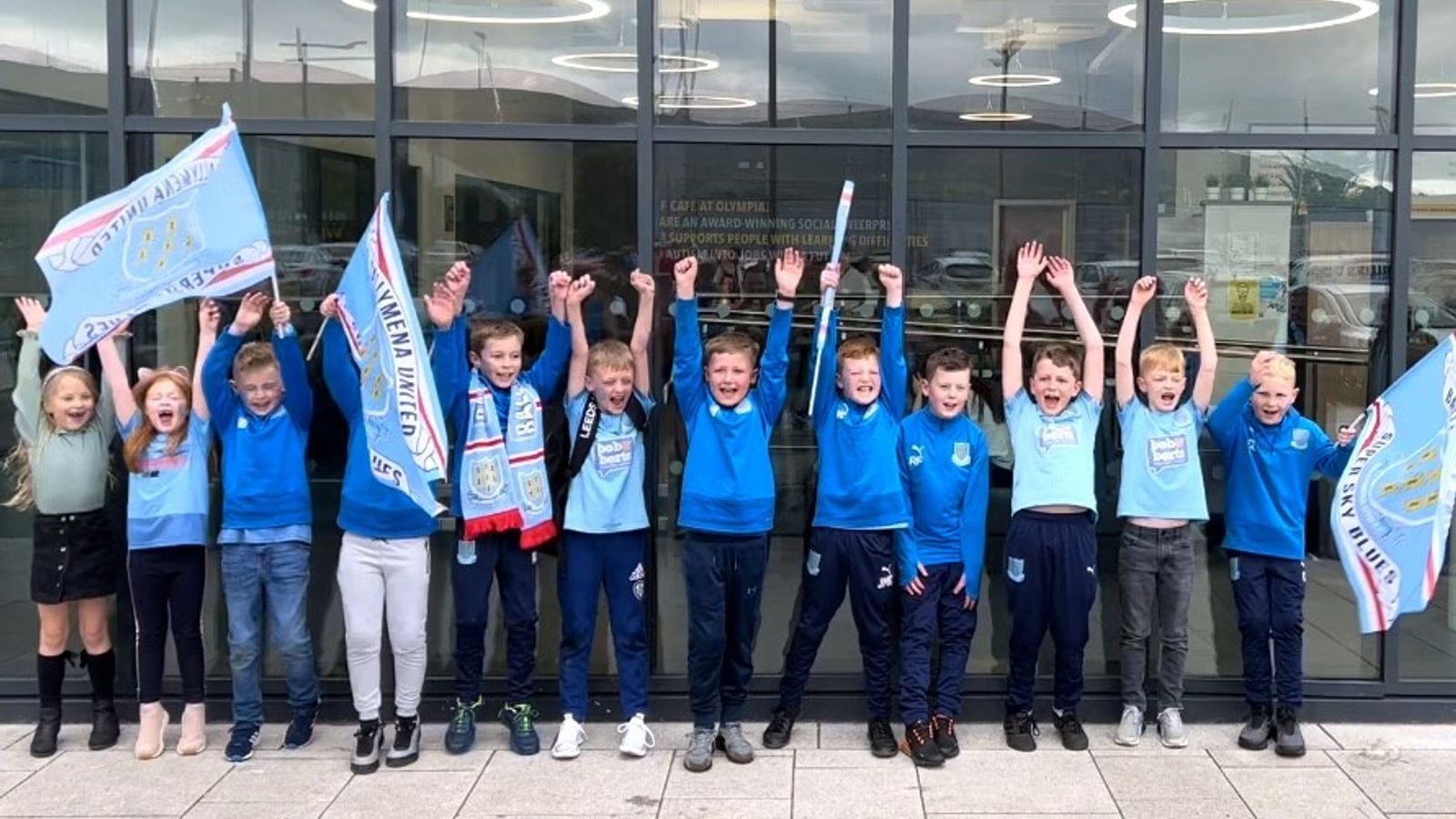As the election counts dragged on into Saturday afternoon, thousands descended upon Belfast’s Windsor Park for the Irish Cup Final.
Ballymena United took on Crusaders for the season’s final piece of silverware.
Both teams have traditionally unionist support bases, and for some, pre-game nerves were tinged with disappointment about the unprecedented success of nationalism.
Resignation in his voice, one Ballymena supporter told us that “elections come and go you know, we just vote and see what comes out the other end”.
His brother couldn’t bring himself to talk about politics – even on a day when Sinn Fein have made history by becoming the first nationalist party to win the most seats in Stormont.
An opposing Crusaders fan, who told us he was a member of a unionist party, said that it was “inevitable” that Sinn Fein would claim the first minister title.
“Which is a pity,” he continued, as “they don’t recognise this country, so they’re not in it to make any people’s lives better”.
Sinn Fein becomes biggest party in Northern Ireland after historic win
Stormont: Sinn Fein edges closer to historic victory in Northern Ireland election
Sinn Fein hopeful of historic breakthrough as votes are counted in Northern Ireland
But can it work?
He replied: “I don’t think so.
“I don’t think it’ll ever work.”
A woman and her 18-year-old son who voted for the first time on Thursday told us that she didn’t think the DUP would go into a new executive with a Sinn Fein first minister.
She attributed the DUP’s plight to a split in the unionist vote, and a consolidation of nationalist support behind Sinn Fein, to the detriment of the SDLP.
A short distance away from Windsor Park is the nationalist Falls Road.
Here, the cup final was being studiously ignored. At the Rock Bar, “the most famous pub on the Falls Road”, attention was firmly focused on earlier Celtic v Hearts match in the Scottish Premiership.
Voters here were happy with the outcome of the election, but there was a decided lack of triumphalism.
Hugh, a Sinn Fein voter from north Belfast, was out for a few pints ahead of his wife’s 50th birthday party.
Please use Chrome browser for a more accessible video player
He said: “At the end of the day, because of the protocol, the DUP aren’t going to go into government, so it’s basically a waste of time.”
“We’re actually going to have to go through it all again probably”, he continued, anticipating another election within six months.
Glued to the match, with a few lunchtime ciders, were Sinn Fein voters Aisling and Aine. They told us that the prospect of an Irish unity referendum was one reason behind their vote.
“Of course”, said Aine, when we asked if she wanted a United Ireland.
“Everyone does,” she added.
Read more:
How do the Northern Ireland elections work?
Who is Sinn Fein’s deputy leader Michelle O’Neill?
“I don’t think we’ll ever see it in our lifetime,” said Aisling. “Well we will now”, interrupted Aine, prompting her friend to agree.
We met former republican prisoner Jim Donnelly nearby. He served nine years of a sentence for the attempted murder of an RUC officer, before being released under the terms of the 1998 Good Friday Agreement.
He now works with young people from both nationalist and unionist areas to help them avoid a path to violence. He says that unionists shouldn’t fear the election result.
He said: “Let’s work together.
“Unionists have nothing to fear from republicans, more so now than ever.
“Republicans are about building – my perspective as a republican is about building, and it’s about working together to achieve better outcomes for our people. That’s what it’s about, let’s do it together.”
It’s a message you’ll hear often from people on both sides of the traditional divide here, and even more so from the sizeable middle ground that made its voice heard in this election.
Whether that filters through to the politicians attempting to form a new devolved government is highly uncertain.







